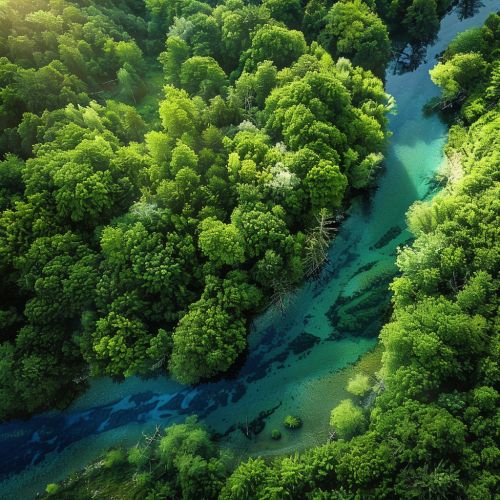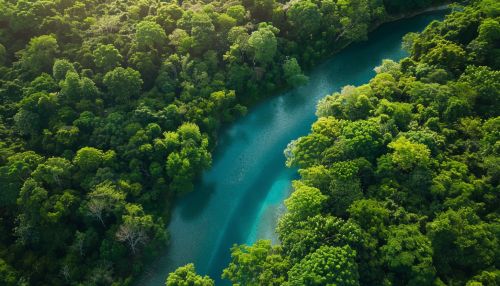Conservation (ethic)
Introduction
Conservation ethic is a philosophy that advocates for the responsible management of the planet's natural resources. It is a principle that guides decisions and actions aimed at preserving the natural world, particularly its biodiversity, for future generations. The ethic is rooted in the belief that humans have a moral responsibility to protect the environment and ensure its sustainability.
Historical Background
The concept of conservation ethic can be traced back to ancient civilizations. Many indigenous cultures, such as the Native Americans, practiced sustainable living and had a deep respect for nature. However, the formalization of the ethic in Western societies did not occur until the late 19th and early 20th centuries, during the Industrial Revolution. This period saw a significant increase in environmental degradation due to industrialization and urbanization, which prompted the need for conservation.
Principles of Conservation Ethic
The conservation ethic is guided by several key principles. These include:
- Sustainability: This principle emphasizes the need to use natural resources in a way that ensures their availability for future generations. It advocates for the responsible use and management of resources to prevent depletion and degradation.
- Biodiversity: Conservation ethic values the variety of life on Earth and recognizes the interdependence of all species. It promotes the protection of all forms of life, including plants, animals, and microorganisms, and their habitats.
- Ecosystem Services: This principle recognizes the benefits that humans derive from ecosystems, such as food, water, climate regulation, and recreation. It advocates for the preservation of these services through the maintenance of healthy and functioning ecosystems.
- Intrinsic Value: Conservation ethic acknowledges the inherent worth of nature, independent of its utility to humans. It asserts that all forms of life have a right to exist and should be respected and protected for their own sake.
Conservation Strategies
There are various strategies employed in the conservation ethic. These include:
- Resource Management: This involves the sustainable use and management of natural resources. It includes practices such as sustainable agriculture, forestry, and fishing, which aim to balance the use of resources with their conservation.
- Habitat Protection: This strategy focuses on the preservation of habitats to protect the species that live in them. It includes the establishment of protected areas such as national parks, wildlife reserves, and marine protected areas.
- Species Protection: This involves measures to protect individual species, particularly those that are endangered or threatened. It includes laws and regulations to prevent hunting, poaching, and trade of endangered species, as well as efforts to breed and reintroduce species into the wild.
- Education and Advocacy: This strategy aims to raise awareness and promote understanding of conservation issues. It involves education programs, campaigns, and advocacy work to influence policy and behavior towards conservation.


Challenges to Conservation Ethic
Despite its importance, the conservation ethic faces several challenges. These include:
- Economic Factors: Economic development often comes at the expense of the environment. Activities such as deforestation, mining, and overfishing can lead to environmental degradation but are often driven by economic incentives.
- Population Growth: Rapid population growth can put pressure on natural resources and lead to their overuse and depletion. It can also result in habitat loss and fragmentation, which can threaten biodiversity.
- Climate Change: Climate change poses a significant threat to conservation. It can lead to changes in ecosystems and habitats, and can threaten the survival of many species.
- Lack of Awareness and Understanding: Many people are not aware of the importance of conservation or do not understand the issues involved. This can lead to behaviors and decisions that harm the environment.
Conclusion
The conservation ethic is a crucial philosophy in our modern world, where environmental degradation and biodiversity loss are pressing issues. It calls for a shift in how we view and interact with the natural world, from exploitation to stewardship. By adhering to the principles of conservation ethic, we can ensure the sustainability of our planet and the survival of all its inhabitants.
